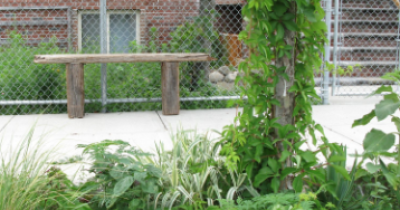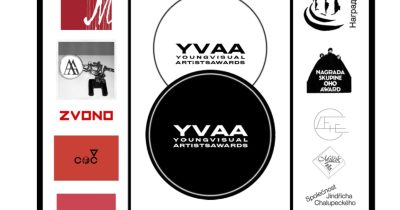To see the original post click here.
Interview by Nagy Gergely.
“A lot of the pressures that the art community here is dealing with many places abroad are dealing with as well” – says the director of The Trust for Mutual Understanding which supports arts projects across borders.
The Trust for Mutual Understanding (TMU) was established in 1984 for supporting cultural and environmental projects across borders, especially between East and West. After 1989 we thought that the borders will disappear and more or less this is what happened when former state socialist countries joined the EU. But now borders are problematic again and now we have new obstacles in front of the understanding.
TMU is active in 30 countries all together, in the Baltic States; Central Asia; Central, East, Southeast Europe; Mongolia; and Russia. The visual arts community in East Central Europe knows TMU’s name mainly by supporting residency programs of RU (Residency Unlimited) in the States. There are art awards in our region which have a strong connection with RU and TMU: Jindřich Chalupecký Award (CZ), Oskár Čepan Award (SK) and Leopold Bloom Award (HU), and also Budapest based ACAX (Agency for Contemporary Art Exchange) runs a program with them.
Director of TMU, Barbara Lanciers travels a lot in the region. We met her Budapest where she has strong ties. She has relatives here and she also worked in this city as a theatre director.
artportal: In an interview you’ve mentioned your Hungarian background. Especially your grandmother who you had a strong relationship with and who somehow helped you on your way to become a theatre director. Who was she?
Barbara Lanciers: My grandmother left Budapest in 1944 and went to Germany briefly, and from Germany she came to the States, to New Jersey. And when she got older she moved to Sarasota, Florida which is what most old Hungarian people in the States do, so Sarasota is an enclave for old Hungarian pensioners. My grandmother didn’t like to talk. When I was growing up we were very close but she didn’t talk about her past. Anytime I would ask her about her past she avoid the topic and I never really was connected to my Hungarian roots because of that. So I just thought that every so often you have a grandparent that makes funny food and has a funny accent and that’s it. When I was in my early twenties I was more and more getting involved in the theatre. I had studied theatre in the college and my grandmother was always very supportive for me to be a performer and that time also a coreographer. She would try to come to all of my pieces and was clearly very happy with my performances which is rare I think in the generation of grandparents because they are always very practical saying you should have a proper job, you should be a doctor, a lawyer, whatever. But she was very happy that I was in the theatre, but she was a little bit strange to me anyway, so I did not think too much of it. When I was 24-25, I was visiting her and she sat me down and showed me these photographs of her when she was a kid, 9 or 10 years old maybe, and that was her dressed up in these very traditional Hungarian costumes with four or five other girls on a stage. I was like: Nagymama, is this you? She said yes. And she said she was a member of a professional theatre and dance ensemble called Adori bácsi. She lived close to the Heroes Square in Budapest and the leader of this company, Mr.Kovács once saw her singing on the street and he told her that: You have to be in my theatre company! And she became the primadonna. And when she told me all this she said: that’s why I was so excited for you to love performance the way that you do. ’I think I gave this to you’ – she said.
Along with your job at TMU (The Trust for Mutual Understanding), do you still continue as a theatre director?
Yes, I do, but not as much as I used to. I started at the TMU nine years ago and that time I was the assistant. It was very easy for me, I thought about my work at the foundation as my day job and I was at a lot of shows at that time, at theatre company at that time, so I was very active in the theatre community. As time went on I got promoted at TMU and had more responsibility, so my work there became less and less my day job and more and more my passion. And about four years ago I was asked by the trustees to be the director. That was a big decision, because I knew what it meant for my theatrical career: things would shift and theatre would become my hobby. I had to make sure that I was OK with that and I decided that I was. I’m incredibly passionate about the work I do at the TMU, it’s a honour to run the foundation and I still try to be as active as I can be on the theatre field. Because it makes me a better grantmaker to understand what it’s like to be a practitioner.
As for the theatre field: taking a look at the work of the TMU one can see that it supports quite a lot of theatre projects. The foundation is less active on the contemporary visual art field. Why is that? How is it with the decision making?
First of all philanthropy is very different in the USA than in Hungary. Second of all, we are a private foundation, as opposed to a public foundation or grantmaking program we have a different set of protocols. For example at the NEA (National Endowment for the Arts) in the States they invite experts from the different art fields so the applicants are being reviewed by a panel, by a jury. That’s not how we do it. We don’t have juries. We have an open call application process, there are two steps: there is an initial inquiry, the staff reviews these inquiries and we decide whether or not to invite a full application. If a full application is invited the staff reviews all the applications and makes recommendations to the board at a board meeting. Then we have very deep, long conversations with the board about all the proposals that are came in and ultimately it’s the board’s decision what we fund and don’t fund. They rely on the staff that gives them as much information about the applicants as possible so the preparation for these meetings are very intense. We have a very small staff, there’s four of us total: myself, a program officer, a program associate and a regional representative based in Berlin. We all have our personal specialities, like I focus a bit more on Hungary and on theatre, Alina, our program officer she’s very much into environmental issues as well as into visual arts – her backgorund is anthopology. So, we are all generalists basically and we do a lot of research and try to inform ourselves on the projects the applicants are applying for and we have a board of advisers who are specialists on certain fields. Theatre was always a big part of TMU’s grantmaking – even before me coming to the foundation – and basically we are very responsive to what comes in. This year we didn’t get many visual arts proposals but last year or a year before we had quite a few. For example: music… sometimes we get no proposals involving music and sometimes we are flooded with them. Sometimes there are less proposals involving Hungary, sometimes there are lot more. From Poland we were getting a lot, less so the past year – so it’s also geopolitical I think.
And maybe also reflects to the situation in the States. Because you only support organisations in the States so what comes in is based on their fields of interest and their connections with the organisations in the region. The applications are not coming directly from here.
Yes, that’s right.
So it’s also possible that this region’s visual art community just does not have as strong connections with organisations in the States as the theatre scene has.
Yes, that’s very possible. And also our historical grantmaking is interesting too because there are three programs that we’ve been funding since 1992. One is CEC Arts Links Awards program which alternates every year focusing on visual art and focusing on performative art. The other one is the Young Visual Artist Award which has now eleven countries participating – that’s solely a visual arts based program. Each of the participating country has an award and the awardee gets an exhibition in their country and go to Residency Unlimited in Brooklyn for two months. These two programs are very visual arts focused, and the third one is a dance program that was called the Suitcase Fund and now it’s called The Global Practice Sharing Fund. We focus on 30 countries total but we only have a two million dollar grant budget which sounds like a lot of money but when you have 30 countries and you’re focusing on arts and environment it’s not that much.
The art scene here knows TMU’s name by a specific program you run in partnership with ACAX and Residency Unlimited. There are always questions about residencies. In our region artistic work often means residency work these days because at home it’s almost impossible to find the time, the space, the funding, the background for certain types of artistic practices. Do you think artists can benefit from staying in a city almost unknown and trying to pursue their project there and to get in terms what is going on around them?
Totally. But so much of it depends on the person and on the circumstances they find when they arrive. I can speak from personal experience. As an artist the first time I spent more than a week outside of my homecountry was when I was 25 and I came here to Budapest where I spent 6 weeks. And that 6 weeks changed my life. Not just my personal life. Not just because I got to know family members whom I’ve never met before. On a professional level, to be an artist – in my case a theatre artist – to see work from a different culture, to be immersed in a different culture, a different aesthetics, it changed how I saw the World, how I saw my own practice. I made friends who were inspiring to me and collaborators that I still work with. I come from that perspective as an artist, looking at what TMU does and I also consider myself an internationalist as well. The local is still very important to me too, but understanding the international context and the global context too has the utmost importance. For a young artist to go to, let’s say, Residency Unlimited in New York for two months, that experience can be so overwhelming. Because the city itself is an overwhelming place to be. But what I think is really wonderful about what Residency Unlimited does is that it’s not just a studio you can use for two months. They look at you, they talk to you, they know where your interests are, they know the projects you are working on and they play matchmaker. They introduce you to institutions, to people, to places, so it’s a very tailored program and I think that that makes the difference. That kind of hosting can really deepen a person’s experience.
With ACAX we have a five years long relationship. There has been five Hungarian artists taking part in this program and every time a Hungarian artist is coming to Residency Unlimited, they bring them to our office and we have a meeting with them and when they have a public event at Residency Unlimited, we go to that event – so we get to know these artists and I’m always incredibly beyond impressed with the artists who come from ACAX. They are professional, they are articulate, they are curious, they have a solid practice underneath them but they are still young and I think all of them have made the most of their time in New York and made hopeful connections. We saw that this opportunity is very important to them and they take it very seriously and want to work as hard as they possibly can.
What does this tell you about the contemporary art scene here?
I think there is something very special about the visual arts community here and I also think that the pressure that the arts community is under is making life here challenging for these artists are having to work together new ways. I mean the OFF-Biennále is such a great example how to think outside the box and deal with a really difficult situation as far as erosion of state support, erosion of places to exhibit, erosion of opportunity. This community here on a really grassroots level created its own set of opportunities and I think that the international art world should pay an attention to that. Because a lot of the pressures that the art community here is dealing with many places abroad are dealing with as well and even now starting to deal with in the United States too. Hungary is really mind of an amazing model of how to deal and try to thrive in very difficult circumstances. There is a level of professionalism and a level of commitment that we see from artists from Hungary.
You closely follow the proceedings in the Hungarian politics and sure know about the recent changes of the legislation regarding the NGO’s. Did it make more complicated for you to cooperate with organisations in Hungary?
We haven’t felt it yet and I hope we won’t feel it. The way that our work legally structured is that we make grants to US based non profit organisations and we fund their exchanges. We are making grants for US based institutions and they will work with their partners within any of the 30 countries we operate. So we do not transfer funds to the bank accounts of organisations here. And as a foundation we are apolitical. We don’t take a political stand when it comes to particular governments or governmental policies. We want to support relationships across the borders. We have an anonymous donor who started this project in 1984 during the cold war because she was really worried about the lack of dialogue and understanding between the blocks. So this was really a peacemaking foundation. And we don’t shy away from the fact that the democratic values are very important to us. The name says a lot: The Trust For Mutual Understanding. So if you learn about each other and if you care about each other across borders it’s much more difficult to have geopolitical turmoil. We are not a diplomatic organisation either. We believe in diplomacy but for us it’s not about governments, it’s about people. My family is from here and I lived here so of course I follow the political situation quite closely – but I follow the political situation quite closely in my country as well. At the TMU it is my role to know as much as I possibly can about the political context, social context in all 30 countries where we work, the new legislation being passed and how these legislation impact our grantees and our ability to work in that countries. It’s a lot. I learn a million new things every day.
Last year we’ve read and heard a lot about the protests and demonstrations of the art community in the United States against certain policies introduced by the Trump administration. There were new initiatives like „Hands Off” that seemed to bring the artists together and organise them. Now we don’t hear too much about these actions. What is happening now?
I think global media is interesting. It works both ways. Like it happened in connection with the CEU situation. When the laws were about to be passed and the people were out on the streets protesting the media reported, all the major global publications reported: this is what happening. Unless there are no huge numbers of people out on the streets the media does not report but the CEU situation is still ongoing and the people here have to deal with it on an everyday level. It’s the same for us. When a new policy is being introduced we have to deal with it and now it is also very strange for us that new policies now can be announced on Twitter. The whole process goes on a very strange way and there is this kind of reactionary impulse. When immigration policy came, and the travel ban came, the people reacted amazingly, they went out to the airport. And every time a new version of immigration policy comes out the people are still reacting and during these protests the art community was quite vocal. But there is a certain amount of fatigue that happens as well. And there is a certain amount of trying to make a systemic and endemic change particularly within institutions to have values that reflect equity, that reflect inclusivity. We have conversations in the US now about race and gender and sexuality as well, lots of things that were taken for granted for a long time. These are not necessarily private conversations but it’s a slower process and it’s not something the media is always reporting about. I think we all have to be careful of always being reactionary and not being proactive.



